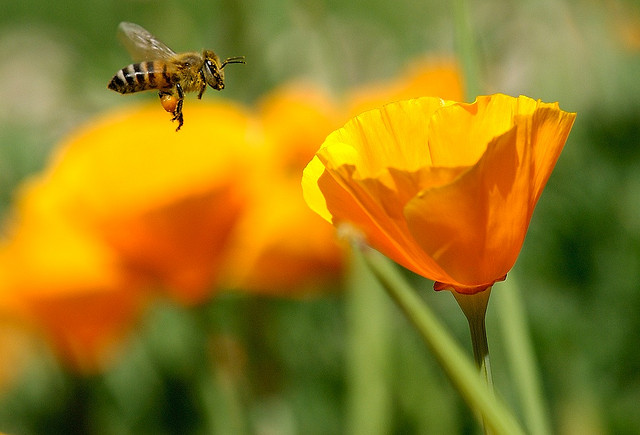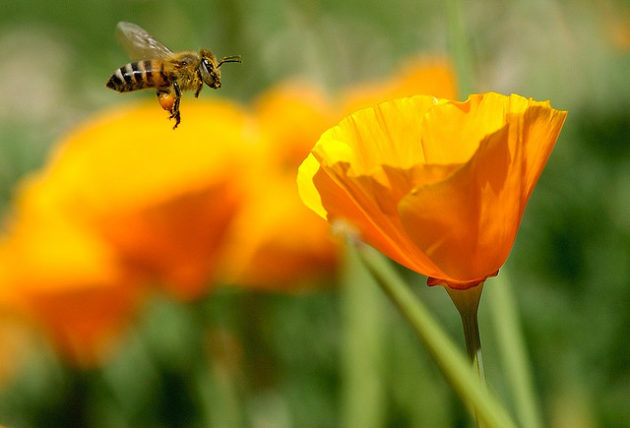
Laws Aren’t Beautiful. People Are Beautiful.
 When I think of Rosh Hashanah, I am immediately struck by the drama of the Day of Judgment. I think of a time of introspection, of melodic prayers and inspiring poetry, of sweet foods eaten with family and close friends.
When I think of Rosh Hashanah, I am immediately struck by the drama of the Day of Judgment. I think of a time of introspection, of melodic prayers and inspiring poetry, of sweet foods eaten with family and close friends.
I do not think of sex.
That is, I never used to think of sex in relation to Rosh Hashanah, until a friend sent me an article which attempted to link the two. In an elegant and vivid piece, Merissa Nathan Gerson characterizes honey, a food prevalent as we celebrate the New Year, as the creative result of the unbridled sexual energy of the abstinent worker bees. Suddenly, dipping the apple in honey was no longer a simple act to symbolize a sweet new year.
Gerson takes her point further, though, comparing the abstinence of the bees to the abstinence practiced by Jewish couples who observe the laws of niddah, often translated (poorly, in my opinion) as “family purity” or sometimes “menstrual purity.” For couples who practice niddah, the laws prohibit intercourse approximately two weeks of every month– from when a woman sees the onset of her period until after she has counted seven days of absolutely no blood. For many, the laws also include prohibitions of sleeping in the same bed, any form of touch, and even passing items directly from one person to the other. This system, argues Gerson, causes the sexual energy to build up, giving couples a store of vivacity and enthusiasm that can be channeled into enhancing other areas of Jewish life.
“For Jewish couples that observe the laws of niddah, half the month is then reorganized, redirecting sexual energy into the community, into the work of protecting the “queen”—the sanctity of the Sabbath. During the periods of abstinence, this energy is used to perform acts of tikkun olam, study Torah, or generally apply oneself toward the greater good of the Jewish collective. While bees produce honey, I like to think of Jewish laws around sex as yielding something, too: a sweet substance that comes in the form of tzekadah, of building community, and making the world brighter through devotional practice.”
My challenges to this argument are almost too numerous to count. Are we incapable of making a beautiful Shabbat dinner when we are permitted to have sex? Do we assume that all our energy should be, or is, channeled to sex at other times of the month? Do we truly live in this binary in which we have a limited amount of energy that can either be applied towards sex or to improving the world? And, if so, do people who do not have prohibitions on having sex do less to improve the world around them? Do people who are not in relationships have a greater obligation of tikkun olam– repairing the world? Is there a way to measure our sexual energy to ensure that at times when we are niddah we are exerting the proper amount of energy into the Jewish community? Are pregnant women and nursing mothers who are amenorrheic exempt from contributing to the improvement of the world and the betterment of the Jewish community? Do we consider women who choose to skip periods using hormonal birth control methods also to be exempt, or would we still consider them obligated to apply themselves toward the greater good of the Jewish collective since their absence of a period is chemical? Or, like niddah, does one’s commitment to Torah study and tikkun olam only begin when one sees the flow of blood?
2 comments on “Laws Aren’t Beautiful. People Are Beautiful.”
Comments are closed.




No, Ms. Picker-Neiss, your questions aren’t facetious, they’re a reasonable response to a fatuous essay. Sometimes people stretch too far to impose seasonal “meaning” on religious practices. I get the impression that this Ms. Gerson had some vague idea linking New Years’ honey with “the birds and the bees”, and came up with this nonsense.
E.g., “Merissa Nathan Gerson characterizes honey, a food prevalent as we celebrate the New Year, as the creative result of the unbridled sexual energy of the abstinent worker bees.”
Makes the honey sound like, um, “the seed of lying down.” Eww. It’s well known that honey is bee vomit, which is bad enough.
Another perspective on niddah, in addition to mental closeness, attraction, or distancing: if we generally justify the tumah as a response to the loss of potential life, to those who are infertile, frustration. It seems like an incredible waste of time and religious energy (and $25/month for mikva fees and cloths) to deal with something that is a response to something that will NEVER happen (absent a miracle). Which is another question for Ms. Gerson.
Rori – thank you for this well-reasoned, articulate response. So much of what’s written about Jewish practice is apologetics, leaving those of us who feel uninspired by certain laws feeling even worse than before, as you so very rightly point out. As a former day school teacher, I was burdened by my students’ descriptions of horrific Shabbatot in their Orthodox homes (tables as war zones of fighting over minutiae of observance; one girl was forbidden to come to dinner in pants and therefore went without Shabbat dinner for years) and worried that experiencing Shabbat in our home was so paltry a ‘tikkun’ to their conditioning as to be virtually pointless.